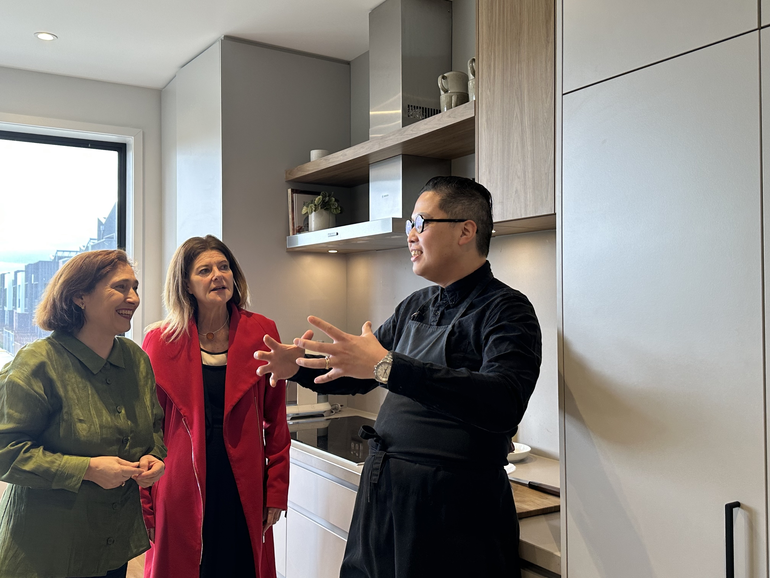Victoria paves the way for healthier, all-electric homes
28 Jul 2023
The Victorian Government has today announced that all new homes and residential subdivisions will be all-electric from 2024.
Green Building Council of Australia CEO, Davina Rooney, joined the Victorian Energy Minister Lily D’Ambrosio and Housing Minister Sonya Kilkenny as they addressed the media this morning, from an all-electric home in Melbourne.
Ms Rooney said this is a major step forward for Victoria, and will pave the way for the rest of Australia to eliminate fossil fuels from our homes, making them healthier for all Australians.
“Victoria uses more gas than any other state in Australia, with around 80% of homes currently connected to the gas network. Today’s announcement will result in better, healthier homes for Victorians, cheaper energy bills, and significant reductions in emissions,” Ms Rooney said.
The effect of gas in homes is comparable to the impact of passive smoking, with one study showing children living in a home with a gas stove had a 42% increased risk of asthma, while a study from Stanford University found that 75% of methane leaking from gas stoves happens while the stove is turned off.
“Today’s announcement will result in significant improvements in air quality for new homes across Victoria,” Ms Rooney said.
The announcement also applies to all new public buildings. Schools, hospitals, police stations and government-owned buildings, that are yet to reach design stage must be all-electric from next year.

“Most buildings standing today will still be around in 2050, so eliminating their reliance on gas, and making them all-electric will ensure they are ready for a decarbonised future,” Ms Rooney said.
Ms Rooney said that while today’s announcement is a big step in the right direction, “we need to see similar commitments from all of the states and territories.”
“To meet our legislated net zero targets, we need buildings to be healthy, all-electric and powered by renewables. Large parts of the property sector are already driving the change, and now we’re seeing governments join us on this important transition.”
You can read more about GBCA’s electrification work here.
